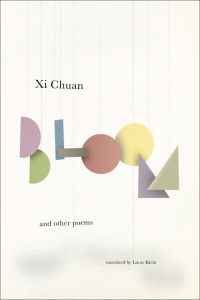Aigerim Tazhi’s “Following the Breath of the Earth” is a refreshing reminder of another way of life through Kazakh spirituality—one that treasures the interconnectedness of nature and all of the species in it, where nature stands for truth in an undivided and nonhierarchical ecosystem. The ancestral belief in the gods of the sky (Tengri) and earth (Umai) echos the current calls for decolonial approaches to climate justice. And yet, the critique of the tourists who contaminate glacier lakes in Tibet, or the rise of yurts for camping trips North America, or the odd questions asked of the poet in Rotterdam, gently caution against the performative gestures that appropriate Indigenous beliefs. The story’s motif of nomadic travel and breath fits well in this conception of an interconnected world.
This theme of nature and the interconnected ecosystem for alternative worldbuilding is carried out in several other articles, including Jang Okgwan’s poems (tr. Susan K), with motifs of water and moonlight; and Leeladhar Jagoori’s poems (tr. Matt Reeck), of mountains and terrain.
I also appreciated the attention on language, the limits of the written word, and the rebelliousness of vernacular expression in this issue, especially in Sebastián Sánchez’s interview with Chilean author Diamela Eltit (tr. Fionn Petch) and in the poetry of German-Turkish Ozan Zakariya Keskinkılıç (tr. Özgecan Kesici). Each provides glimpses into the capacity of language play and hybrid rule-bending for community-building, political resistance, and memorialization.
—Vuslat D. Katsanis, Assistant Editor (Poetry)
Chen Yuhong’s poem “Buddhist Pine” opened my eyes to different ways of being still/degrees of stillness. The way the poem successively transposes metaphors of animal, seasonal, granitic, and athletic stillness on the motionless pine made me understand that things can be still in different ways. That the pine might have a willed, disciplined stillness, or that it might be coiled, or frozen, or at rest, or somehow all at once.
—Matthew Redman, Digital Editor READ MORE…





